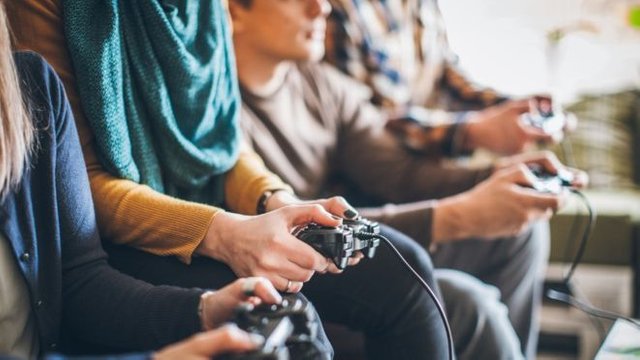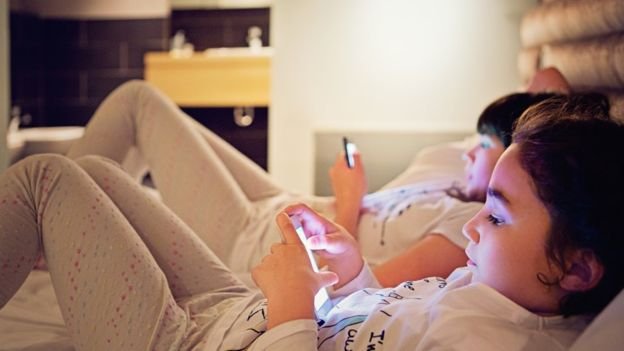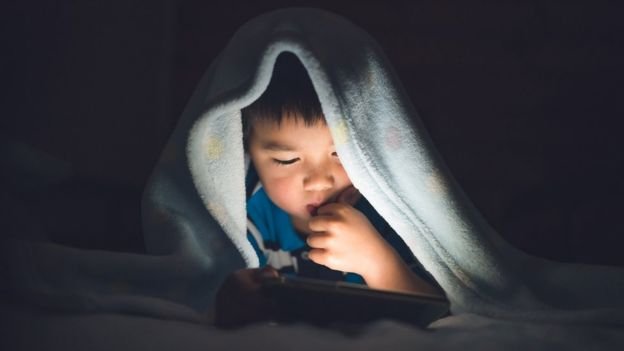WHO gaming disorder listing a ‘moral panic’, say experts

The decision to class gaming addiction as a mental health disorder was "premature" and based on a "moral panic", experts have said.
The World Health Organization included "gaming disorder" in the latest version of its disease classification manual.
But biological psychology lecturer Dr Peter Etchells said the move risked "pathologising" a behaviour that was harmless for most people.
The WHO said it had reviewed available evidence before including it.
It added that the views reflected a "consensus of experts from different disciplines and geographical regions" and defined addiction as a pattern of persistent gaming behaviour so severe it "takes precedence over other life interests".
Gaming becomes the latest addiction
How much screen time is 'too much'?
'Slippery slope'
Speaking at the Science Media Centre in London, experts said that while the decision was well intentioned, there was a lack of good quality scientific evidence about how to properly diagnose video game addiction.
Dr Etchells, who lectures at Bath Spa University, said: "It sets us on a potentially slippery slope.
"We're essentially pathologising a hobby, so what's next? There are studies on tanning addiction, dance addiction, exercise addiction, but nobody is having a conversation about including them in ICD 11...
"I don't think policy should be informed by moral panics, which is what it feels like is happening at the moment."
Dr Etchells said estimates of those who are addicted range from fewer than 0.5% to nearly 50% of players, which meant there was a danger of failing to identify who actually had a problem and who just enjoyed playing games.
"What we're doing then is over-diagnosing, we're sort of pathologising a behaviour that for many people is not harmful in any way

The experts were also sceptical that screen time overall - which also includes the use of things like smartphones and tablets - was harmful for children and adolescents, as some studies have suggested.
Such concerns have prompted the Commons Science and Technology Committee to hold an inquiry into the issue.
Dr Etchells and Andy Przybylski, associate professor and director of research at the Oxford Internet Institute, University of Oxford, said such papers usually only showed weak associations between screen use and health.
Prof Przybylski said in such studies usually about 99% of a child's wellbeing could be attributed to factors unrelated to screen time.
He said it also might be the case that lots of screen time was linked to other problems going on at home.
"New, good studies that add to what we understand about the effects of screen time over time on young people, they're really few and far between," Prof Przybylski added.

Dr Max Davie, officer for health promotion for the Royal College of Paediatrics and Child Health, said there was evidence of a link between excess screen time and reduced sleep and obesity.
But he said the RCPH was unlikely to support the idea of restricting screen use in its upcoming guidance on the issue.
The American Academy of Paediatrics proposes a limit of one to two hours per day for young children.
Dr Davie said: "We don't think that approach is evidence-based. What we're interested in really is the content and context of screen time."
Dr Davie added that for now his advice was for people to keep smartphones and other screens out of theirs and their children's bedrooms at night.
Dr Etchells added: "The best evidence that we currently have really suggests some screen time, some video game playing, is better than none at all, particularly for child wellbeing."
The WHO said classing gaming addiction as a mental health disorder "will result in the increased attention of health professionals to the risks of development of this disorder and, accordingly, to relevant prevention and treatment measures"